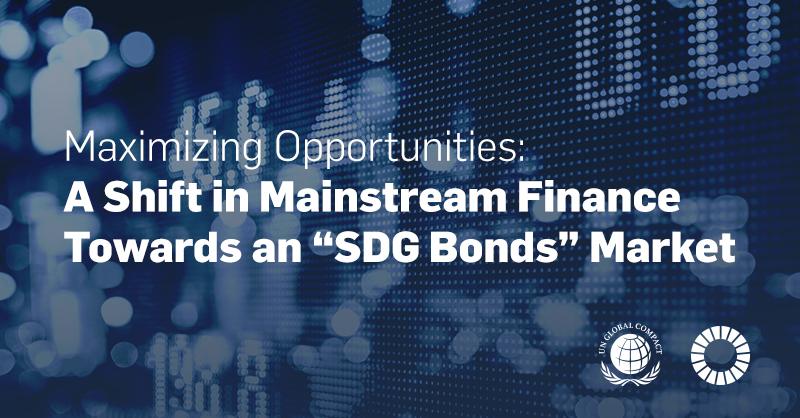Investors Signal a Shift in Mainstream Finance Towards an “SDG Bonds” Market During Financial Innovation Symposium

Investors Signal a Shift in Mainstream Finance Towards an “SDG Bonds” Market Du…
NEWPORT BEACH, Calif., February 9, 2018 /3BL Media/ - The United Nations Global Compact, in partnership with PIMCO and ENEL, convened a two-day symposium to mobilize private finance and investment around the Sustainable Development Goals (SDGs).
Hosted at PIMCO headquarters in Newport Beach, U.S.A., the event convened approximately 100 leaders representing public policy, pension funds, asset management, banking, the corporate sector and other investment spheres. The event was supported by the UN Global Compact and its partners at UNEP Finance Initiative and Principles for Responsible Investment.
Titled “Maximizing Opportunities: ESG 2.0 and the SDGs,” the symposium featured a range of important policy, investor, and business perspectives. Panels covered such topics as ESG/SDG materiality; fiduciary duty and impact; and financial innovation, especially in relation to the development of “SDG Bonds.” In 2017, the UN Global Compact launched a Financial Innovation for the SDGs business Action Platform to explore these topics, with a specific focus on identifying innovative financial instruments with the potential to direct private finance towards critical sustainability solutions.
“This event marks a true milestone in the evolving agenda around SDG finance and innovation,” said Gavin Power, Deputy Director of the UN Global Compact. “Critical mass in mainstream finance is building around new concepts and solutions, and this will help answer the so-called billions-to-trillions imperative.”
In his keynote address, Emmanuel Roman, Chief Executive Officer of PIMCO, stated: “We are the custodians for generations to come and our actions toward the SDGs will define and mark this generation. Getting it just right can unleash massive amounts of capital.”
A focus of the discussions was the potential creation of a new investment market in “SDG Bonds,” from both sovereign and corporate issuers. Experts believe that the long-term nature of the SDGs makes fixed-income securities perhaps the most promising SDG financing vehicle.
Donatella Izzo, Head of Investor Relations at Enel, said that such securities will need to reflect fundamental changes in business models as they relate to sustainability. She noted that in the energy sector changes are being driven by technological innovations in power generation as well as the broader climate change agenda, which is ultimately catalyzing energy-efficient responses and action.
Scott Mather, Chief Investment Officer at PIMCO, noted that the financing gap in relation to the SDGs —estimated at 3 trillion to 5 trillion — means that institutional investors must play an essential role. “The appetite for impact in investments is growing with the SDGs, marking a new way to partner with the public sector,” he added.
Representing the public policy perspective, Philip Fox Gough, Minister Counsellor of the Government of Brazil, noted the importance of Governments’ national plans of action in relation to the SDGs, stating that these represent the entry point for business and investors.
In relation to the evolving concept of “SDG Bonds,” Rebecca Self, Chief Financial Officer for Sustainable Finance at HSBC, presented HSBC’s new SDG Bond Framework, which covers both environmental and social goals with associated criteria.
The presence of major asset owner institutions, most notably CalPERS, was of significant importance as such organizations — as owners of capital — drive the investment chain in many respects.
Priya Mathur, President of CalPERS Board of Administration, said that in the view of CalPERS “the SDGs represent a gift to investors. We feel they are the best way to drive sustainable investment and attain better risk-adjusted returns. By acting on the SDGs, we can achieve a more sustainable world and this will drive investment performance.”
About the United Nations Global Compact
The United Nations Global Compact is a call to companies everywhere to align their operations and strategies with ten universally accepted principles in the areas of human rights, labour, environment and anti-corruption, and to take action in support of UN goals and issues embodied in the Sustainable Development Goals. The UN Global Compact is a leadership platform for the development, implementation and disclosure of responsible corporate practices. Launched in 2000, it is the largest corporate sustainability initiative in the world, with more than 9,500 companies and 3,000 non-business signatories based in over 160 countries, and more than 70 Local Networks. www.unglobalcompact.org

